Michael Laub / Remote Control Productions
The Post Confinement Travelogue
PHOTOGRAPHY / TRAILER / CREDITS / PRESS
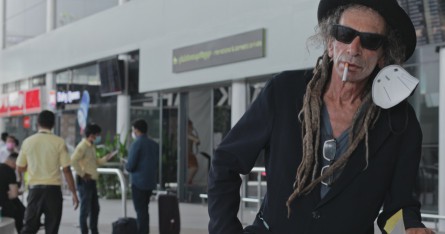
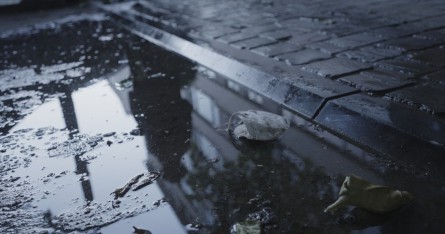
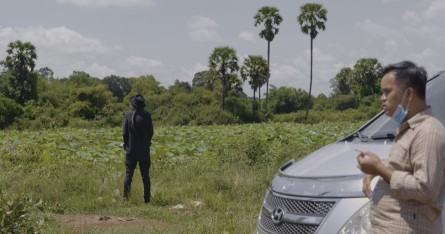
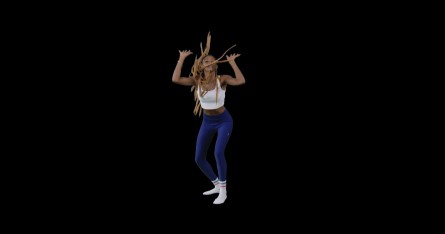
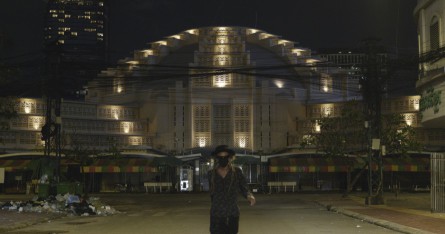
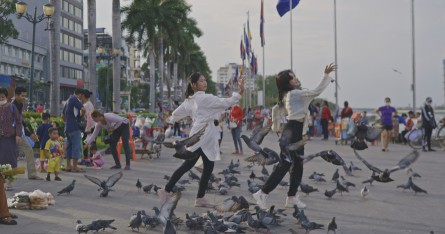
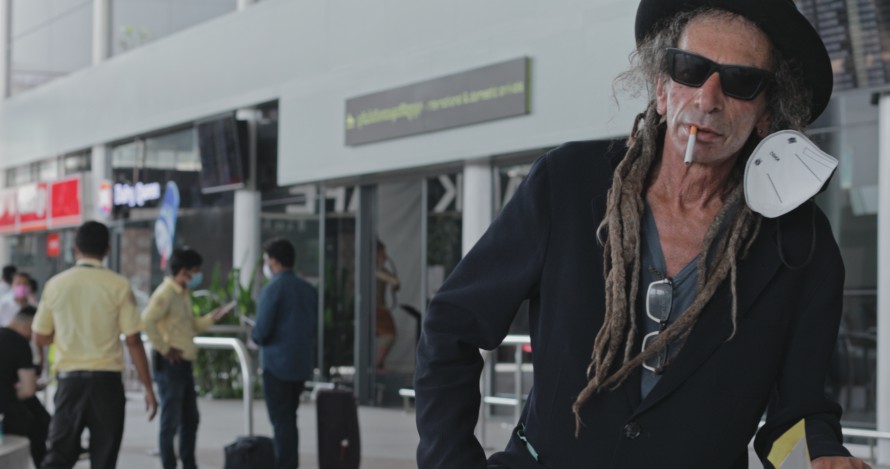
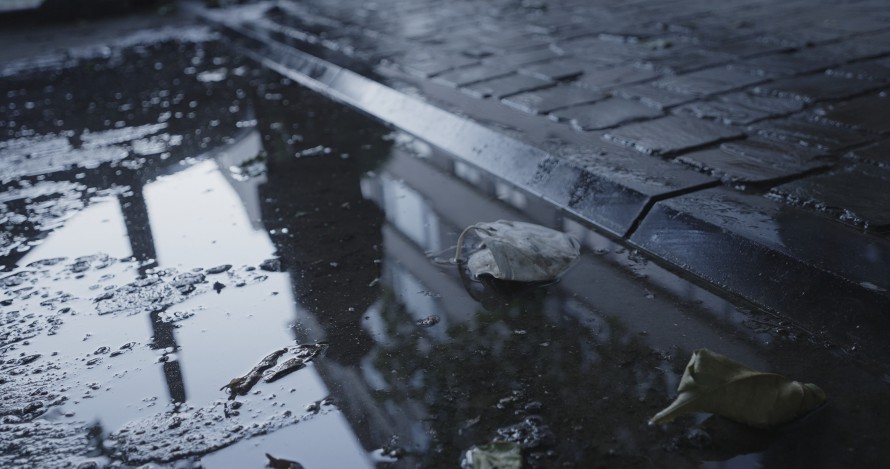
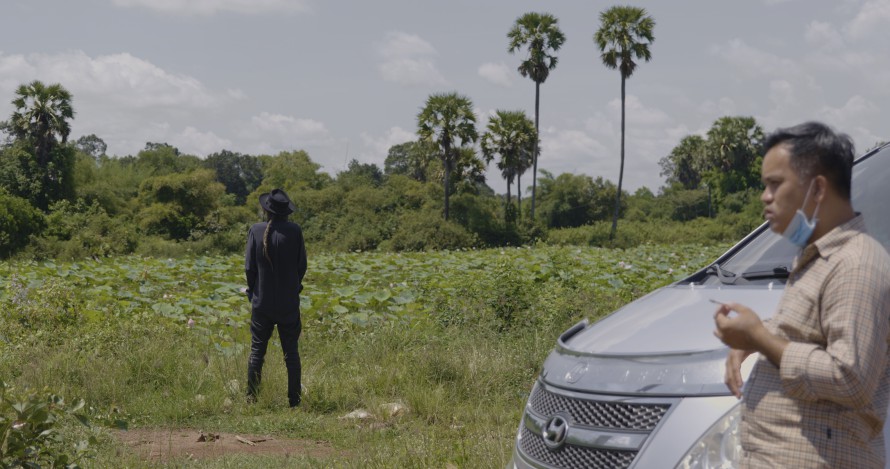
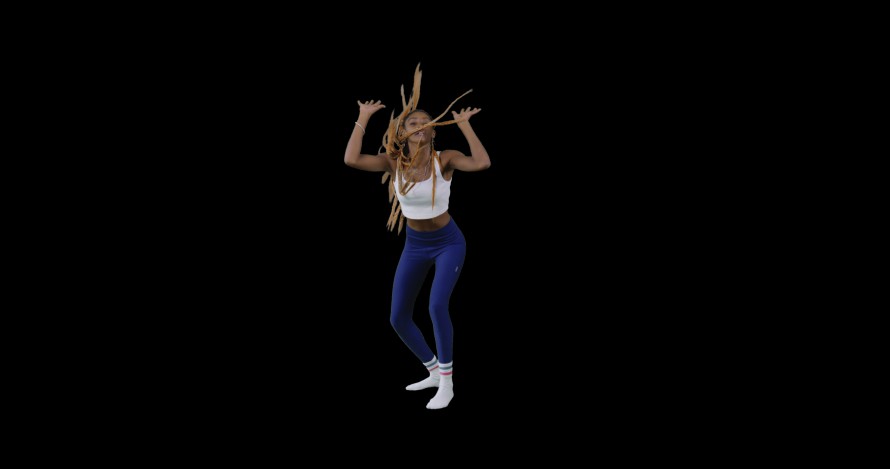
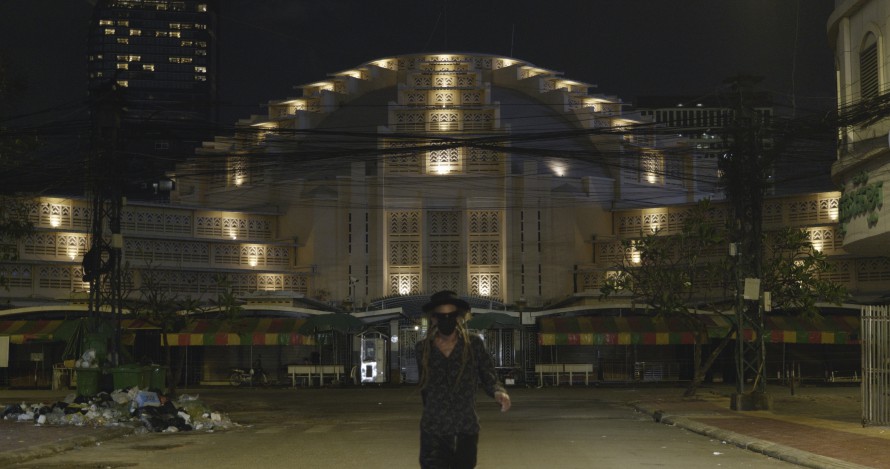
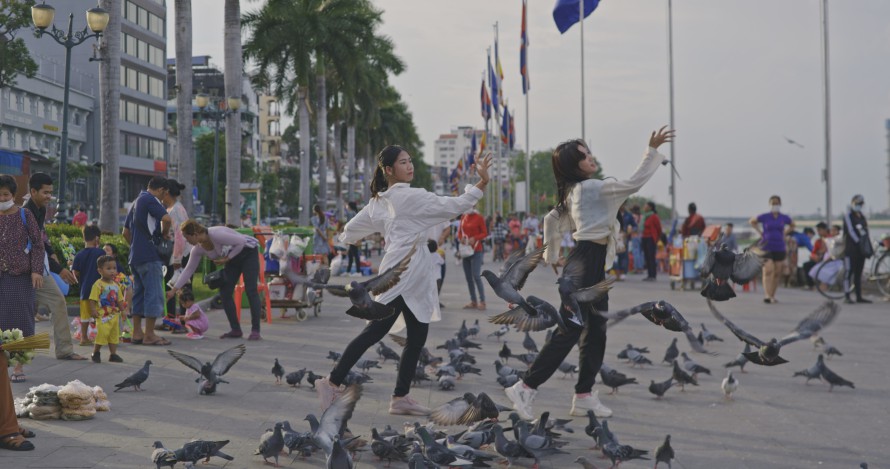
After being officially confined (because of COVID), then self-confined (because of fear) in Brussels for two years, a contemporary director–choreographer on the decline is unable to produce his new staged piece. He was meant to be rehearsing with members of his company as well as local dancers in Mozambique, but production issues and travel restrictions have forced him to cancel, and his company is now defunct.He returns to Cambodia where he worked before, notably on a Fassbinder movie about making a movie.He records himself while traveling and auditioning expat and local talents for a hypothetical video project. Although he wasn't planning to appear in the video, he decides to do so because the guy who was supposed to take the part dumped him. He recalls road movies from the ’70s, in which lonely guys chain-smoke and travel a lot, but don't seem to get anywhere end up talking to themselves into a tape recorder.He documents his relationship to hypochondria, loneliness, music and dance with scenes improvised on the spot as well as orchestrated inserts, throwing in excerpts from his former works (which few people saw). Oscillating between reality and fiction, The Post Confinement Travelogue is a wry look at post-pandemic art.
CREDITS
Directed by Michael Laub
With Michael Laub, Sreynich Yoeun, Sreythy Touch, Maria Seck, Svetlana Epifanova, Tin Por, Danita Mauv, Sokim Seng, Deva Laub
Tuktuk driver Hung Hong
Minivan driver Khemara You
Make-up artist Van Vart
Hotel receptionist Khim Seyha
Video production and sound production Oyen Rodriguez
Sound designer and re-recording mixer Vincent Villa
Sound editor and assistant re-recording mixer Elie Ommering
Audio post-production Kongchak Studio Cambodia
Video Brussels Sébastien Alouf and Benoît Baudson
Video Ho Chi Minh Jack Vo Tran Viet Tranh
Additional cell phone videos Mathieu Ly, Ulla Cronqvist and Samuel Laub
Additional camera assistance Cambodia Dara Pech and Jake Almeida
Proofreading Amanda Coffin
Executive producer Coralie Morillon
Assistant director Mathieu Ly
Assistant director Brussels Miriam Schmidtke
Soundtracks Mute Speaker, Madison Khmer Soul Beat, Pazuzu, Infection, KlapYahandz Records
Vietnamese lullaby Lien Anh Nguyen and Tran Thi Kim Tuyet
Special thanks Ebru Karaca, Michael Stolhofer, Greg Zuccolo
PRESS
Wiebke Hüster, Frankfurter Allgemeine Zeitung, 27.07.23
Dance Film as Self-portrait
The Director Dances
Michael Laub’s film The Post Confinement Travelogue is pre-premiered at the Vienna Festival Impulstanz
In the early nineties, successful institutions working outside the ensemble system of municipal and state theatre had become established in Germany. They offered independent directors and choreographers places to rehearse and perform, and as co-producers in a European network made sure that independent companies were able to exist and tour. Under the directorship of Nele Hertling and Maria-Magdalena Schwägermann, the Hebbel-Theater in Berlin – and previously also the Akademie der Künste under Dirk Scheper – became the temporary home of independent artists. One of these was the Belgian director and choreographer Michael Laub, who had begun to develop his form of new dance-theatre in Sweden at around the same time as Pina Bausch renamed the Wuppertal Ballet Ensemble as Dance Theatre in her first season in 1973/74, and William Forsythe created his famous Urlicht in 1976.
Laub continued this endeavour from 1994 onward with Daniel and the Dancers, his Bollywood piece Total Masala Slammer/Heartbreak No. 5 in 2001 and The J. C. Andersen Project – Tales and Costumes in 2003 to Rolling in 2019. His co-producers have included Szene Salzburg and the Vienna Festival. Another piece by Laub has just been previewed in Vienna, the recently completed film The Post Confinement Travelogue. Independent directors were perhaps the worst affected by the pandemic, and Laub’s favourite dancers were scattered to the four winds. In despair about the isolation, he initially created something completely different: the picture book Rewind Song, featuring the best images of his work. The Post Confinement Travelogue is its continuation in moving images, a memento mori, a self-portrait.
In the film the artist – who at most gives lectures, but for the past forty years has not appeared in any of his works – plays himself, for want of a performer to take on his role. We see him flying to Cambodia, staying in hotel rooms, lying insomniac on the bed. During the day he zigzags between motorcycles, and at night he smokes in bars. Like a fata morgana or Lulu fantasy, two female dancers present short variations inspired by classical Cambodian dance to pop music in everyday clothing – surprisingly, in different locations: at the edge of a rice field, on a promenade. Between these performances, like flashbacks, Laub inserts excerpts from his works – not only those created in Cambodia.
A Dance Retrospective on Celluloid
So it’s a journey to the past, an act of self-assurance, a personal retrospective on celluloid. Sometimes Laub smiles ironically, as if relieved that the pandemic has loosened its claws and he, who as a director has invited so many people to collaborate in acted and danced self-portraits on film and stage, who indeed pretty much invented this form, can now deliver his own portrait. And deliver he does. He even dances!
Laub’s company – may it rise like a phoenix from the ashes of the pandemic! – is called Remote Control, and this evocative name covers the many motifs of his work, which are also rediscovered in this film. Laub is obsessed with the repetitive. There are dances in his productions that run through the evening like a long happy rerun, like rewinding back to a favourite scene yet again. He realises these rewinds choreographically, to hypnotic effect.
Laub is fascinated with film and its possibilities. His works could also be seen as a continual calibration of the possibilities of theatre with those of film. Film footage of his performers on the big screen are part of his productions. The cinema, and its obsession with love and death, violence and beauty, is reflected in every piece. He loves rehearsing, shut in a studio with everyone for six weeks like on a film set. During the long and manically thorough preparation phase beforehand, Laub searches constantly for the right performers, who not only need to be charismatic stage personalities and fabulous dancers but also have to look right, as in Hollywood. So in 2017 he worked with the wonderful actor Lukas Gander as Rainer Werner Fassbinder for the Berlin premiere of Fassbinder, Faust and the Animists.
In Rockstar Vein
But now Laub as Laub, a slender sunburned man with long dreadlocks, which have now gone grey, always dressed in black, often with a hat, la côté rockstar, as the French say. The great beauty and sadness of this film portrait arise from the alternately captivating and thought-provoking images of a country marked by the ugly side of Western capitalism.
The film deals with Laub’s yearning for this country, his search for the traces of its classical dance and its transformation through and with Western pop. It’s a farewell, a visual eulogy to what post-colonialism has done to Asia. The portrait of an artist who implicitly acknowledges this and despises himself for his fascination; an artist who has produced a marvellous book about his work during the pandemic, and now that travel and collaboration are once again possible shows himself as an ageing man feeling his way out of isolation and back into the world and movement.
Laub is always interested in images that influence us, the qualities and possibilities of different media, iconic beauty and its exploitation by art, the impossibility of happiness outside these artificial worlds, forbidden dreams, one who proffers and one who devours with the eyes. It’s a homage to a classical beauty that is always dancing away.
Helmut Ploebst, Der Standard, 03.08.2023
Summary of Impulstanz: Great aesthetic range, some discoveries
"[...] outstanding the preview of The Post Confinement Travelogue (2023) by Belgian Michael Laub (70), which depicts the loneliness of being on the road in times of the pandemic.“
Wiebke Hüster in Conversation with Kultur heute
Deutschlandfunk, 24.07.2023
Michael Laub and Olivier Dubois – Retrospectives at the Festival ImPulsTanz in Vienna
Moderation:
There’s a kind of cinematic transition here to the work of Michael Laub. Let’s talk about him. The Belgian choreographer is the central protagonist of a film, and he’s also put out a book he compiled during the Covid pandemic. What dance stories does he tell?
Wiebke Hüster:
Yes, it’s terribly interesting, because you could say it’s a self-portrait. And you can also see this with another great French conceptual artist, Jérôme Bel, who has recently devoted a portrait to a famous dead dancer and choreographer, namely Isadora Duncan. But he also invited living dancers and choreographers to be portrayed by and with him and to present this as solos.
Michael Laub is the source of all this. Michael Laub is the actual inventor of the staged choreographic portrait, and he has done lots of them wonderfully. He’s been working with his company Remote Control since 1975, and he’s held auditions in Berlin, Amsterdam, Istanbul, Phnom Penh. There he practically invited everyone in the city to present themselves and take part in the audition. Then he chose the people, and they stepped in front of an rolled-out screen, like in a photo studio, and began to tell stories and dance.
It was marvellous series, and so it’s only consistent that he’s now turned in a self-portrait, that he’s representing himself. He isn’t doing it on stage, because he told me he’s always hated that – he hasn’t appeared in his own things for forty years.
But because of the constraints of the Covid pandemic, in which he made this book, this catalogue of his work, he now has the feeling … his main performer cancelled. He had to jump in and do it himself.
Moderation:
You call this project Auto-Retrospective, and you’ve mentioned the Covid restrictions, which were extremely difficult for dance in particular because it always involves physical proximity. What does this project stand for?
Wiebke Hüster:
This is a director whom we accompany on a journey to Cambodia, and he travels around in various vehicles – air-conditioned buses or rickshaws – and he keeps seeing these two beautiful female dancers, like in a dream. This is typical Michael Laub. They’re classically trained, they have the hand movements of classical Thai dance, but they do it to this wonderful hypnotic modern pop music. And he blurs all this together, his interest in a history that goes back a very long way, and what the young people make out of it today.
What has Western culture brought in? Taken away? What is our perhaps terrible colonialist ongoing capitalist influence? But does it have a beauty that shouldn’t be killed?
Moderation:
Many thanks, Wiebke Hüster from Vienna, for these insights into the programme of the ImPulsTanz dance festival in Vienna.
Beuys said: “When an artist takes a selfie, the selfie becomes an art work.” Or didn’t he say that? Every good work of art is a self-portrait. Question: Is a selfie a self-portrait? Laub‘s theatre work shows always his intense love for people. This self-portrait is of a lonely wolf who walks for days in a dark forest, finds all of the sudden a mirror, looks in it and says: “What the fuck is that?”
Jan Lauwers
